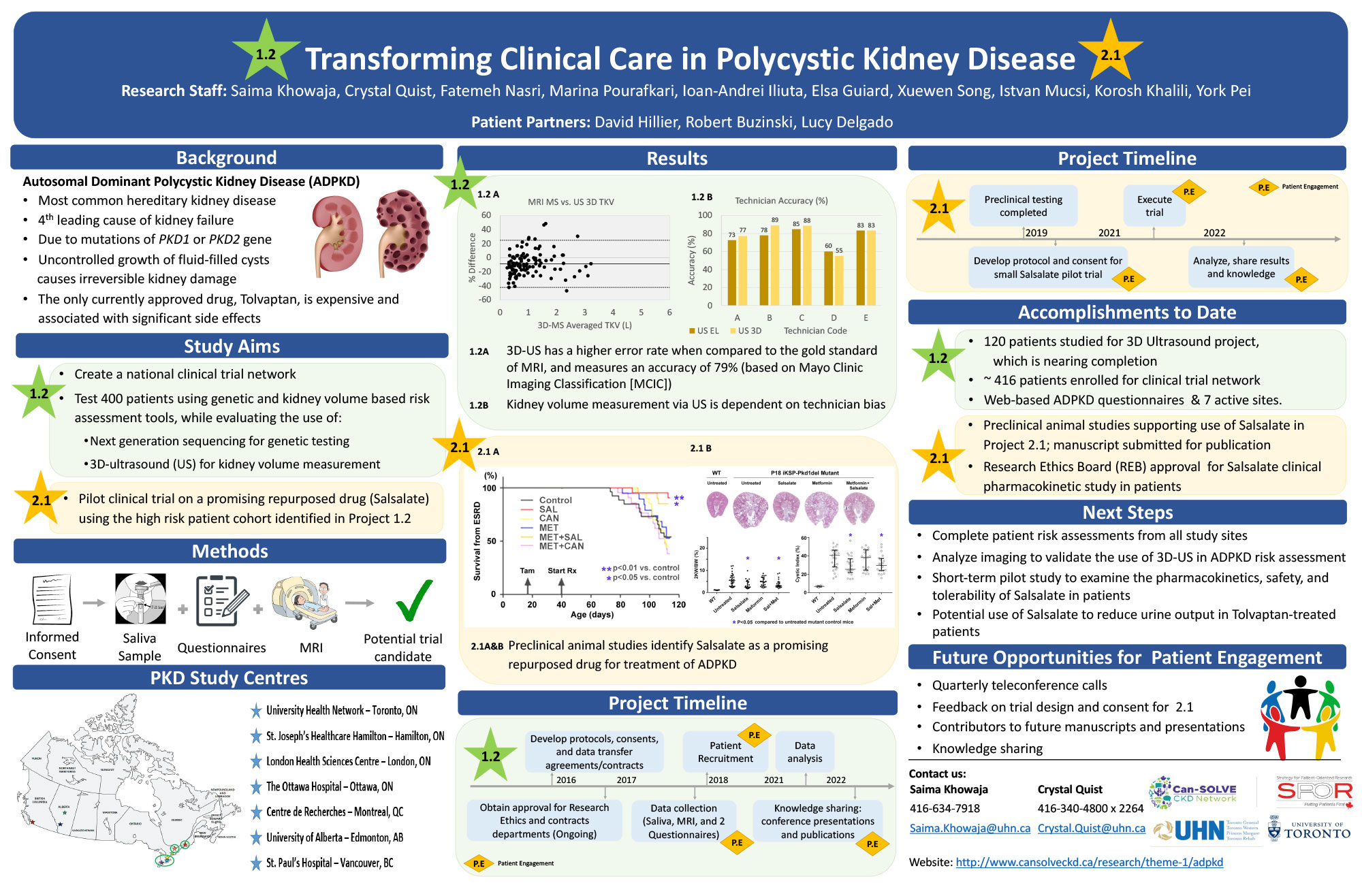Project Overview
Autosomal dominant polycystic kidney disease (ADPKD) is the most common inherited kidney disease. There are two types of ADPKD due to mutations of two different genes: PKD1 and PKD2. PKD1 accounts for 75% of cases, and PKD 2 accounts for 25%. Symptoms tend to be more severe in PKD1: more kidney-related complications and earlier kidney failure. There is currently no cure for ADPKD; blood pressure control and a healthy lifestyle are the only ways to slow down the disease.
Genetic screening and tests of kidney size can help nephrologists identify high-risk patients for new or experimental treatments, moderate-risk patients for close surveillance, and low-risk patients for reassurance. These tests, however, are costly and not widely available. We will confirm the usefulness of these tests and make them less costly, allowing for increased use in clinics. Using new technologies, we will modify these tests to reduce their costs. We will then do a study comparing the current testing options to confirm that the new tests are equally accurate but with significant cost reductions. Our goal is to significantly improve doctors’ ability to identify risk and personalize treatment for patients with ADPKD.
Defining risk and personalizing treatment of patients with Autosomal Dominant Polycystic Kidney Disease
Project lead(s):
Dr. York Pei
Patient lead(s):
David Hillier
Research theme(s):
ADPKD
Publications
Prognostic Performance of Kidney Volume Measurement for Polycystic Kidney Disease: A Comparative Study of Ellipsoid vs. Manual Segmentation
Scientific Reports
Shi B, Akbari P, Pourafkari M, Iliuta IA, Guiard E, Quist CF, Song X, Hillier D, Khalili K, Pei Y
Research Project: ADPKD
Keywords: Polycystic Kidney Disease
Connect with us!
Subscribe to receive updates from the Can-SOLVE CKD Network. Learn more about what we do, why it matters, and how you can get involved!





